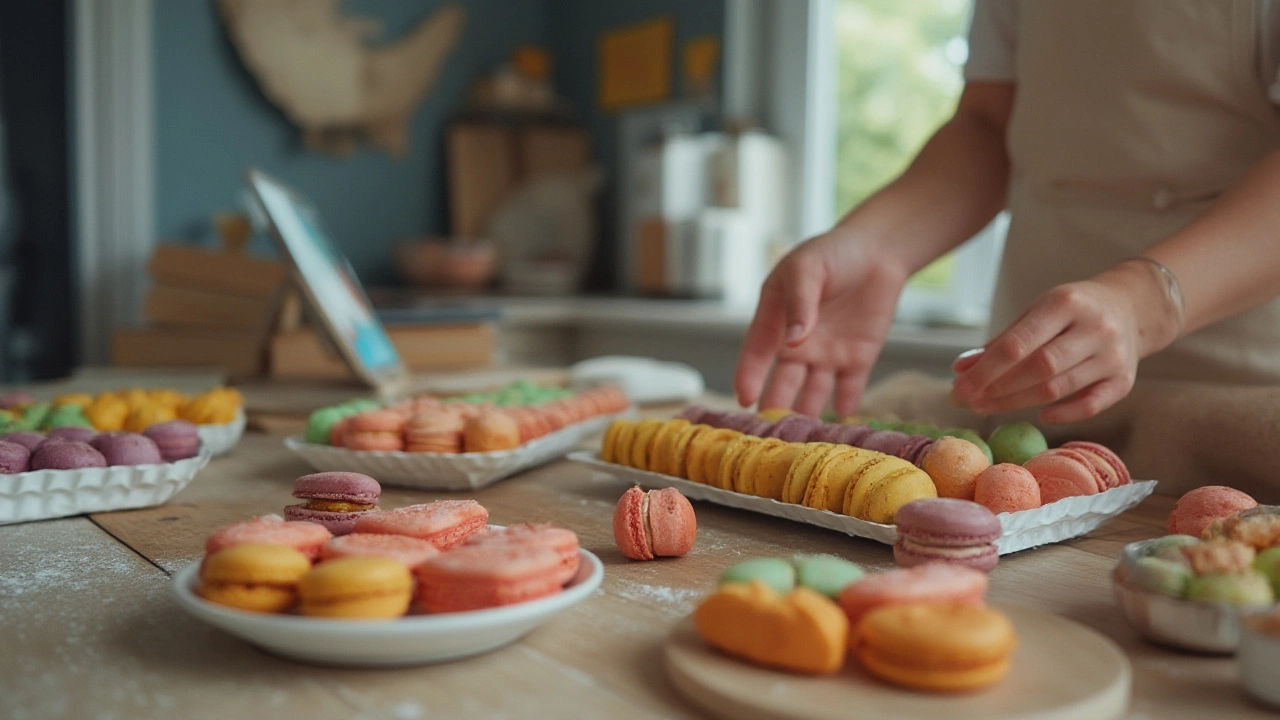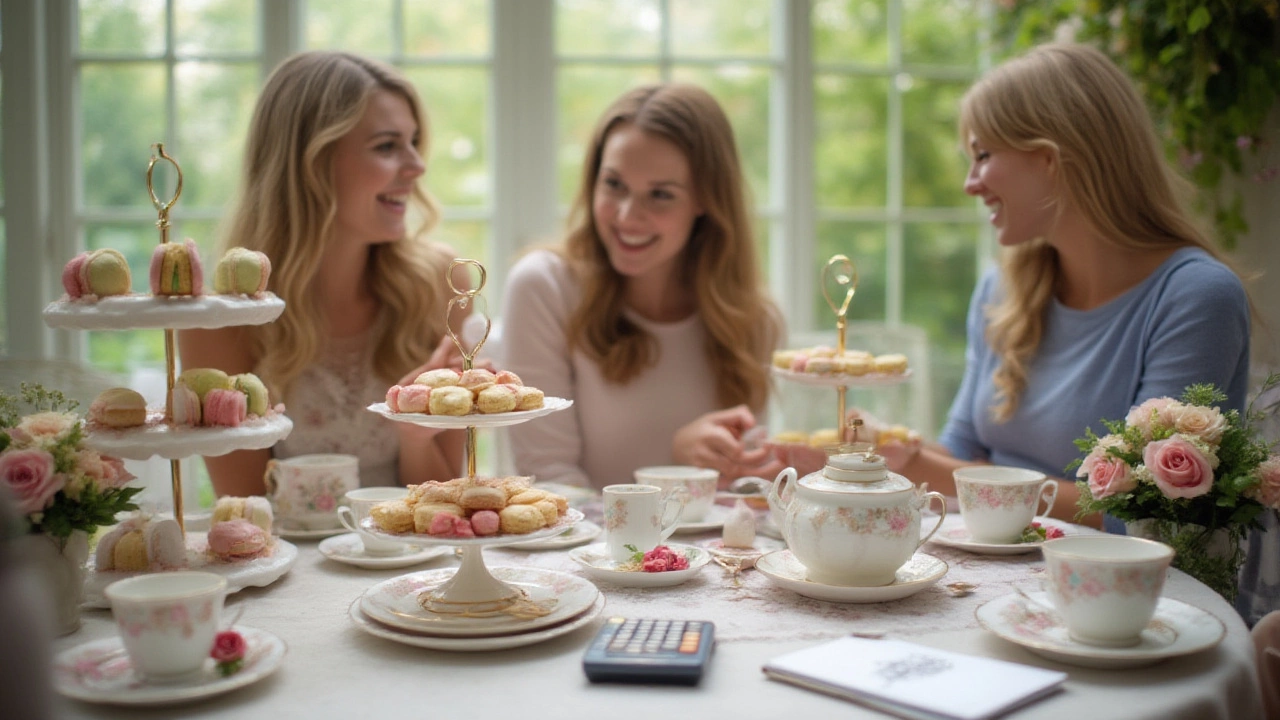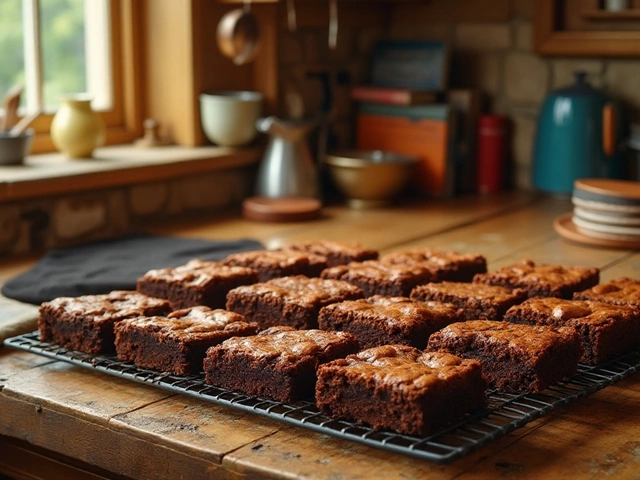Ask anyone who’s tried a macaron—one is never enough. But when you’re actually planning a birthday spread, a baby shower tea, or your own wedding dessert table, suddenly you’re hit with a real challenge: how many macarons should you serve per person? These pastel-hued, delicate French cookies aren’t just photogenic; they’re also quick to disappear, leaving only glittering wrappers and maybe a few rainbow-colored smears. Guessing wrong means you either run out (cue disappointed guests) or you’re left stuffing your fridge with leftovers you don’t even get to enjoy because, let’s be honest, they don’t keep as well as their firmer, American cookie cousins. So, let’s sort out the confusion and finally get a grip on the magic number.
Why Macaron Portions Matter More Than You Think
It might sound overly dramatic, but let’s get real—this question isn’t as simple as it looks. First, macarons walk a pretty unique line: they’re far smaller than a slice of cake, richer than sugar cookies, and so inviting that no one ever eats just one unless they’re being polite. Guests nibble, they pair macarons with coffee, and they often want to sample different flavors. Still, these aren’t giant donuts: each classic macaron is just about 3-4 centimeters across and weighs between 10-14 grams. Even if you’re hosting a group that loves sweets, there’s a hard ceiling before people hit the sugar wall.
Let’s not ignore your guest list. A kids’ birthday party may see treats inhaled by the handful, but at a chic adult brunch, smaller servings could suit genteel appetites. According to data from pavillonledoyen.fr, a renowned Parisian caterer, the average sweet table draws guests toward 3 to 5 pieces per dessert station item, with macarons ranking at the higher end thanks to their cult status. Plus, in 2025, French pastries are more popular than ever—last year’s report from Euromonitor showed demand for authentic European bakeries surging 19% over pre-pandemic levels. If you’re offering macarons alongside multiple desserts, people may go lighter; but if it’s the star attraction, expect enthusiasm (and empty trays).
Another factor in play: the "Instagram effect." It’s not just about eating; people like to display their haul on social, especially if you’re serving rainbow varieties or chic limited-edition flavors. Presentation has become almost as important as taste. A dessert spread with too few options looks sparse and uninspired, which can take the wind out of your celebration’s sails before anyone even tries the first bite.
The Golden Ratio: How to Calculate Macarons Per Person
Let’s break it down without any guesswork. Is there an actual right answer? Well, yes and no—because every event is different. But after baking and catering more than a dozen macaron-filled showers, weddings, and birthdays, here’s the real-life serving guide:
- As a standalone dessert: Plan for 5-6 macarons per person. This holds steady if you’re skipping big cakes or pies and letting macarons take center stage. It ensures that guests try several flavors and go back for seconds.
- On a dessert table with other items: 2-3 macarons per person is safe. People tend to graze from a spread, so they’ll take a few macarons each along with bites of other treats.
- With a meal (plated or after dinner): 2 macarons per guest works well. Here, macarons are an elegant touch—just enough sweetness after something savory.
The outlier? Champagne or high-tea events. If you’re hosting a bubbly brunch, plan for the higher end of servings because the airy texture and bright flavors get devoured. On the flip side, if most of your guest list is comprised of young kids or older relatives who prefer less sugar, you can err a bit lower—but don’t go below 2 per person unless you want your trays looking embarrassingly empty.
Here’s some quick math displayed in a table for parties of varying sizes and styles:
| Party Type | Guests | Macarons per Person | Total Macarons Needed |
|---|---|---|---|
| Birthday (Dessert Table) | 20 | 3 | 60 |
| Elegant Wedding (Main Dessert) | 100 | 6 | 600 |
| Tea Party (With Cake & Cookies) | 10 | 2 | 20 |
| Baby Shower (Only Macarons) | 15 | 5 | 75 |
| Corporate Meeting (With Coffee) | 30 | 2 | 60 |
Don’t forget a fudge factor: always add an extra 10% to your final number just in case. There will be those few who can’t resist seconds (or the inevitable dropped macaron). Leftovers? Macarons freeze well, so your effort won’t go to waste.

Flavor Variety, Dietary Concerns, and Macaron Etiquette
Serving the right quantity is only half the battle. Guests get genuinely excited when they see a rainbow of flavors. The rule of thumb is at least 3 to 5 flavors, even for smaller gatherings. Think classics (like vanilla, chocolate, and pistachio) paired with more adventurous picks (like raspberry rose or passionfruit) for the Instagram crowd.
Here’s a small cheat sheet on crowd favorites and emerging flavor trends as tracked by French baking data firm Omnivore:
- Chocolate and salted caramel top every poll—don’t skip these.
- Seasonal fruit flavors (strawberry-mango in summer, fig or chestnut in autumn).
- Matcha and yuzu saw a 40% rise in searches in the last two years.
- Limited-edition collabs (think “birthday cake” with sprinkles or floral notes like lavender-lemon) drive buzz among the under-30 set.
Allergies and dietary considerations are the next big thing in menu planning. Authentic macarons are gluten free, made mostly from almond flour, egg whites, and sugar—so they’re a sweet treat even celiac guests can enjoy. But eggs and nuts are non-negotiable in the real deal, so be sure to label options for those with allergies or order in a small vegan batch (they absolutely exist, using aquafaba instead of egg—you’ll find them at specialty bakeries or can make them at home with the right recipe).
And as strange as it seems, there’s a bit of etiquette to passing macarons around. Always use tongs or a dessert fork—nobody likes sticky fingers mingling in the serving tray. At buffets, lay macarons out in single layers or tidy stacks so flavors aren’t mixed. If you’re offering them by hand (say, at small tables at a bridal shower), keep flavors separated so guests can ask for their faves.
Tips for Buying, Making, and Presenting Macarons Like a Pro
Getting the numbers right is great, but you can level up your macaron game even more with a few pro tips. If you’re buying from a bakery, order at least two weeks in advance—especially during wedding season or major holidays. Macarons are fragile little divas and need special packaging if you’re transporting them yourself. Request double-boxing (a box within a box, with bubble wrap or cushioning) to fend off crumbled shells.
Making macarons at home? That’s ambitious (and honestly, a little bit wild). The notorious "macaronage" process requires just the right touch—fold too much or too little and you’ll get either hollow or chewy pucks. Invest in an oven thermometer, use superfine almond flour, and let your piped rounds rest until you can touch the top without leaving a fingerprint (usually about 30-45 minutes, even in humid weather). Bake on double-stacked trays for even heat, and never skip the aging step; popping finished macarons in the fridge for 24 hours’ maturation turns them from good to perfection.
Presentation also makes a difference. The current rage in Paris and New York: macaron towers that look like edible bouquets. Investments in multi-tiered stands give your dessert table instant "wow" factor. Another idea? Serve macarons with espresso or a flight of dessert wines—dry prosecco, Moscato d’Asti, or even port. Each pairing brings out different notes in the filling. For smaller gatherings, individually boxed macarons double as amazing party favors (and trust me, guests light up when they have a take-home treat). Just remember to keep them stored between 4-8°C (39-46°F) and never leave them in direct sun or they’ll melt into mushy memories.
And don’t underestimate the power of a handwritten flavor card. Not everyone recognizes the difference between pistachio green and matcha green; cute signs earn you extra points for hospitality. For larger events, rotate trays out every 30-45 minutes so everything looks fresh and inviting. If you want to avoid stress, make a backup platter and store it in a cool space.
One thing’s for sure: macarons don’t just fill bellies—they spark conversations, light up camera rolls, and (when you’ve planned with care) leave everyone grinning from ear to ear. Whether you buy, bake, or both, hitting the sweet spot on portion size makes all the difference in your event’s success. Now, armed with facts, flavor ideas, and real serving sizes, you can confidently answer the question on every party planner’s mind: how many macarons per person? Just don’t forget to stash a couple extra for yourself—crowd-pleasers like these tend to vanish fast the second the platters hit the table.




